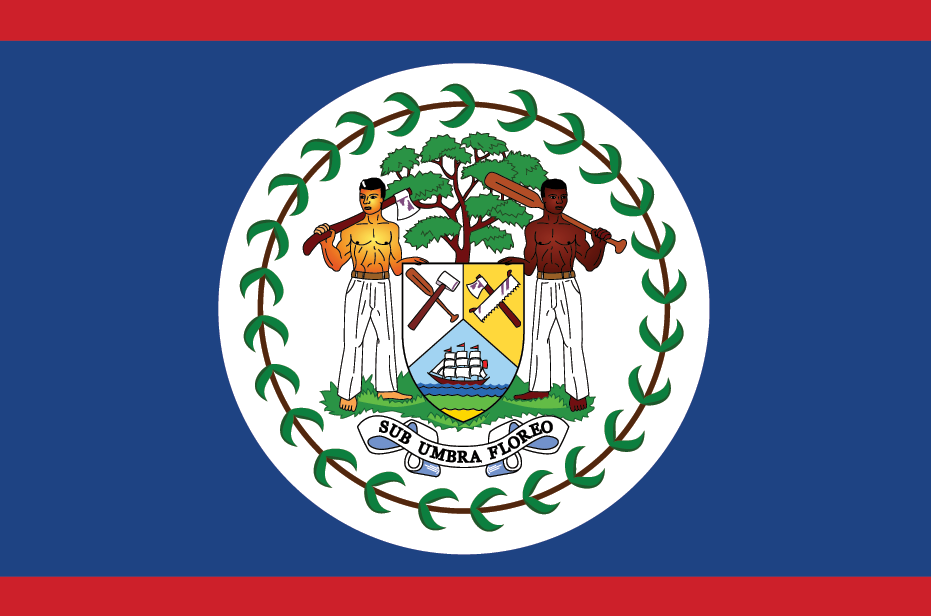
Sustainability Efforts
Country: Belize
Explore sustainability efforts in Belize. The United States Environmental Protection Agency (“EPA”) said it well when they state:
“Sustainability is based on a simple principle: Everything that we need for our survival and well-being depends, either directly or indirectly, on our natural environment. To pursue sustainability is to create and maintain the conditions under which humans and nature can exist in productive harmony to support present and future generations.”
About Belize
Belize, a tropical paradise in Central America, captivates with its turquoise waters, lush rainforests, and ancient Mayan ruins. From the stunning Belize Barrier Reef, a UNESCO World Heritage site, to the pristine beaches of Placencia and Ambergris Caye, it offers unparalleled opportunities for diving, snorkeling, and relaxation. Belize’s rich biodiversity is showcased in its wildlife reserves like the Cockscomb Basin Wildlife Sanctuary. The country’s Mayan heritage is evident in remarkable sites such as Caracol and Xunantunich. The vibrant culture, reflected in Garifuna music and vibrant festivals like the Belize Carnival, immerses visitors in the local way of life. With its warm hospitality, diverse ecosystems, and adventure-filled activities like cave exploration and zip-lining, Belize beckons explorers to uncover its natural wonders and experience the magic of its tropical allure. Sustainability efforts in Belize will enhance the country’s future.
Sustainability Efforts
Toggle each button below to “open” and “close” the presented data.

Belize is making significant progress in combating poverty through social assistance programs. The poverty rate has decreased from 41.3% in 2002 to 30.2% in 2018, reflecting the effectiveness of these measures. The government focuses on addressing the root causes of poverty and improving the living standards of its citizens.

Efforts to combat hunger in Belize include the National School Feeding Program, providing nutritious meals to students for their overall development. Additionally, the country supports sustainable farming practices to enhance food security and reduce dependence on imports.

Belize prioritizes healthcare and has invested in infrastructure to improve access to quality services. Infant mortality rates have significantly declined, indicating better healthcare outcomes and improved well-being. The government also promotes preventive healthcare measures and awareness campaigns to address public health challenges.

Education is a key focus in Belize, with a strong emphasis on improving literacy rates and ensuring access to quality education for all. The country has achieved an 80% literacy rate, reflecting its commitment to promoting education as a means of empowerment and social advancement.

Belize is dedicated to gender equality and has implemented policies and legislation to ensure equal rights and opportunities for all genders. The Gender and Development Index has shown a positive upward trend, indicating progress in achieving gender equality targets.

The government of Belize recognizes the importance of clean water and sanitation and has made substantial efforts to ensure access to safe and clean water sources. Currently, 96% of the urban population and 89% of the rural population have access to improved water sources, contributing to improved public health and well-being.

Belize is committed to affordable clean energy and has set a target to achieve 100% renewable energy by 2033. The country is investing in renewable energy projects, such as solar and wind power, to reduce reliance on fossil fuels and promote a sustainable energy future.

The economic growth of Belize is driven by sectors such as tourism, agriculture, and services. The government promotes a business-friendly environment, encourages innovation and entrepreneurship, and supports industries that contribute to sustainable economic development.

The UN and its partners are supporting 0 activities for Sustainable Development Goal 9 out of a total of 0 activities.

Belize actively works to reduce inequalities by implementing targeted assistance programs and improving access to essential services, including education and healthcare. These efforts aim to bridge the gap between different segments of society and create a more equitable and inclusive society.

In line with sustainable development principles, Belize focuses on building sustainable cities and communities. The country promotes sustainable urban planning, waste management practices, and green building initiatives to create environmentally friendly and socially inclusive cities.

Belize recognizes the importance of responsible consumption and production and encourages sustainable practices across industries. The government promotes waste reduction, recycling, and sustainable resource management to minimize environmental impacts and promote a circular economy.

Belize actively addresses climate change by developing a National Climate Change Policy and setting targets for reducing greenhouse gas emissions. The country invests in renewable energy projects, coastal protection initiatives, and resilient infrastructure development to adapt to the impacts of climate change.

Belize is committed to the preservation of its aquatic environment, including its coral reefs and marine ecosystems. The government has established marine reserves and protected areas to safeguard biodiversity and promote sustainable marine use.

Belize recognizes the importance of conserving its natural environment and has designated national parks, wildlife sanctuaries, and protected areas. These efforts protect diverse ecosystems, such as tropical rainforests and rivers, and preserve biodiversity.

Belize upholds peace, justice, and the rule of law through its institutions. The country has a strong legal framework and institutions that promote peace, ensure justice, and protect human rights. Efforts are made to strengthen the judiciary system, enhance legal protections, and promote access to justice for all citizens.

Belize recognizes the importance of partnerships in achieving sustainable development goals. The country actively engages in international collaborations, regional initiatives, and multilateral partnerships to share knowledge, resources, and best practices. These partnerships strengthen capacity building, foster innovation, and support the implementation of sustainable development goals.



